21, February 2022
Federal Republic of Ambazonia: VP Yerima addresses nation says light has eventually chased away darkness 0
My Fellow Citizens of Amabazonia,
I bring you revolutionary greeting from your President SisikuAyuk Tabe and the rest of the team in jail with him. If you read his recent interview with Emergence, you will notice that their fighting spirit remains unsurpassed. They are resolute.Their resolve to fight for a free and prosperous Ambazonia has never wavered. It remains unshakable.
On behalf of the Interim Government, I want to thank all of you who continue to stand by them in their tribulations under captivity by the enemy. They suffer vicariously on our behalf for what we stand for – the freedom of Ambazonia that must come.
I want to extend special thanks to the dedicated and tireless ones on ground zero who visit and support them in every way possible. You constitute a strong link in the unbreakable chain of Ambazonian heroes in our liberation struggle.
Let me also single out for high commendation our selfless, brave, resourceful and ingenuous liberation fighters who continue to demonstrate togetherness and patriotism in resisting the atrocious invading colonial enemy.
We must keep on fighting until freedom is achieved. The alternative of not doing so is too ghastly to contemplate. Our fate would be worse than that of slaves without dignity and identity. We would be slaughtered en masse like sheep to the slaughterhouse. The genocide agenda of the blood-thirsty enemy would be accelerated, and we would be exterminated within a short time. We and our children would be wiped out. The children of our children would be wiped out. And their children’s children would also be wiped out. The people of Ambazonia will ceased to exist. The land of Ambazonia would be stolen by the enemy.
Tonight, I come to share some reflections with you; first, I make a passing reflection on evil that has inevitably fallen, and secondly,I talk about what I believe we need to do to build better, moving forward.
Comrade Ayuk Tabe and his leadership team foresightedly put in place a resource-generating system. The purpose of the system was to provide the wherewithal for our Liberation Struggle to enable us achieve freedom without further delay. Funds generated from the system began to flow in. But a horde of rapacious evil ones laid their leprous hands on the finances. Many of the individuals concerned were simply vagrants and scroungers masquerading as so-called ‘pastors’ – self-designated briefcase fly-by-night ‘pastors.’ They embezzled the funds for their personal upkeep. They swindled the money for their gluttonous conspicuous consumption. They used part of the stolen money to sponsor the assassination of freedom fighters on the ground.
Like the devil who can also quote the Bible, they quoted books, chapters and verses from the Bible impiously fooling vulnerable and impressionable individuals. They started their evil mandates with prayers and fasting to seduce our people that are too religious to a fault, and were not smart enough to notice that they were simply displaying the hallmarks of bible carrying conmen. Today, the scales have fallen from the eyes of most of these unfortunate people and they now know better. In fact, we all now know how the thieves and their accomplices ran their criminal networks. We also now know roughly the amount of the liberation funds that were swindled and used for other criminal activities.
President Sisiku Ayuk Tabe foresaw this calamitous turn of events. That is why he reinstated the IG cabinet and other structures that existed before the NERA 10 incident. He presciently reduced to a counterfeit ‘IG’ the rump of what still advertised itself as ‘the IG’. Some of us naively doubted the wisdom of President Sisiku’s timely action. But today he has been vindicated. Everyone now acknowledges that he took a wise decision warranted by the circumstances. Imagine what would have become of our national liberation struggle today had he not taken that wise decision.
The criminality of wolfs in sheep skin masquerading as fellow comrades in our liberation struggle is now in the public domain. It has been put out by these same people, those among them who have seemingly undergone a road-to-Damascus conversion. Despite the fact that blatant truths about the true nature of these vampires are all out there for even the blind to see, they still shamelessly try to tell more lies in their woes to defend their past falsehood and wistfulness to keep a few gullible Ambazonans still in their nest in servitude.
Truth always triumphs. Like President Sisiku said, “one day the truth will come out and we shall be vindicated.” The same is true of the law. The wheel of justice turns slowly but surely. The long and strong arm of the law will certainly catch up with the principal offenders and their accomplices who have caused so much pain and suffering to our people in this our God-ordained national liberations struggle.
In the past three years we lost solidarity as our common interest. Today, we cannot run business as usual in very unusual times. We need to be bold and boldly face the evil within our liberation struggle. We cannot afford to be gentle with evil and indiscipline among our ranks. Nothing can be achieved in chaos. Nothing can be achieved without serious and purposeful thinking, creativity, hard work, and collective endeavours for the common good.
We must allow ourselves to think beyond the ills that have afflicted us. We must do so because solidarity is critical in the promotion of our common interest. ‘Building Back Better’ will not do the trick. We cannot afford to go back to a situation that is unsustainable.
What commends itself to us now is ‘Building Better, Forward,’ that is to say, building better as we move forward. We must seize the opportunity of the moment to make critical improvements that will address challenges of the hour as well as address clearly foreseeable challenges that are bound to arise as from the Day of Liberation.
This is what ‘Building Better Forward’ entails:
- Rebuilding, remobilising, and restructuring constituencies globally from grassroots up so as to improve human and financial capacity. This will build synergy within us. It will make our revolution shock proof and flexible to weather different storms as soon as they are identified. I believe that the best way to concentrate power within our communities is through Grassroot Remobilization & Regrouping. This means each and every one of our citizens, every one of our cultural and development meetings, every one of our churches at home and abroad, and each and every one of our constituencies around the world, must participate in our liberation struggle, each one contributing to their ability and willing level of sacrifice.
- Focusing on our liberation fighters on Ground zero. This is critical because we are condemned to liberate ourselves, like all colonized peoples in Africa did. In this connection, we will continue to build a unified defence platform for our liberation fighters. We all applaud the lead taken by Bui, Momo and Bali. Same efforts to unite our Liberation fighters on Ground Zero are ongoing in Fako, Meme, Manyu, Donga Mantung and Boyo as we speak. We will replicate these examples in all areas of Ambazonia. A unified defence platform will empower our GZ freedom fighters through effective training and provisioning. This will sharpen and increase their fighting capability. It will make them responsible in the battlefield. It will engender shared-leadership, complementarity, and ensure fighters fight for each other rather than against one another. It will instill in them loyalty to the nation represented by our national flag rather than to individuals. It will redirect them to fight for the people of Ambazonia as a whole rather than for the interest of puppeteers. The cooperation between our Ambazonian self-defence forces and local communities is vital for our success. This is a winning strategy that will improve conduct on GZ and end the crime of kidnapping for ransom which some have desperately sought to dignify by attempting to whitewash it and launder the proceeds thereof as so-called ‘liberation tax.’ It will also stop the shameful, distasteful, outrageous, and unacceptable attacks on Ambazonia schools like what we witnessed on 10th February 2022, when unidentified armed men raided Queen of the Rosary High School (QRHS), Okoyong, in Manyu County. The assailants set fire on dormitories and administrative buildings while students were asleep. With strongly bonded self-defense units in Ambazonia, the military of Paul Biya’s junta will not easily infiltrate and penetrate our communities to foster their genocidal actions on our people and institutions by using pseudo names. Recently, Paul Biya’s militia used a pseudo like “ARF-Black Lions of Manyu” which does not exist in Manyu self-defense to burndown QRC Okoyong. They used pseudo like “armed robbers” to assassinate the unapologetic defender of justice like Senator Barrister Henry Kemende(May his Soul Rest in Power) as well as to cover up their evil acts of genocide.
- Recognizing that resilience and transformative knowledge are keys to our fight for liberation, knowledge we know is an enabler for growth in a more sustainable way. This allows us to willingly use our competencies and huge potential as a collective in our advocacy, communication and in improving the innovative and technical capacity, strategies, and tactics of our liberation fighters on the ground.
- Participating in growing and consolidating the portfolio of the Bank of Ambazonia, our prestigious institution. Many were genuinely concerned about funds being mismanaged and decided to withhold contributing to the Bank. I urge them to get back onboard. A few people sponsored the external Audit of My trip to Buea which the American Authorities now have and we are waiting for justice to take its course and to be done.
The Bank of Ambazonia is duly registered in the United States with a Representative Board of Directors to ensure responsibility, accountability and transparency. Any and all funds in the Bank are, and will continue to be, responsibly spent and every dime accounted for. Diaspora Ambazonians now have no credible excuse for not resuming payment of citizens’ levy. I urge them to pay that levy, buy the Ambazonian freedom bonds, buy the big rubber gun bonds, and create njangi groups to help provide a level of humanitarian assistance to Ambazonians desperately in need.
- Improving on the way we communicate within and without. We can connect and relate better through better and responsible communication. We need to build strong communication channels to reach out to our people on Ground Zero, Ground One and the world at large. This will help us manage and share information better and responsibly. Southern Cameroons Broadcasting Coorporation (SCBC) is a huge symbol of our liberation struggle. We cannot let it down for any reason possible. I want to thank the Board, the team in Germany and some of us who kept it running during these difficult times. It is our duty to maintain it as another of our prestigious institution. I call on the board to continue to be innovative, improve on the content, open up to willing Ambazonians with competencies to make it one of Africa’s best and bring back shows like the Gilly Gilly show which was one of the hallmarks of SCBC.
- Being open and willing to work with other stakeholders in our liberation struggle, those who fight proactively for a free Ambazonia. This demands on our part discipline, honesty, humility, integrity, respect, tolerance, truthfulness, resilience, and above all, putting Ambazonia first and foremost.
My fellow Ambazonians, as you will recall, when I was called to take up this responsibility, in my acceptance speech I said, “Our Liberation struggle is less about me and more about you. We are in this together. Ambazonia must be first.” Your Interim Government always puts Ambazonia first in all it does as these few examples show.
1.We provided support for all legal representation in Ambazonia, Nigeria and French Cameroun since November 2018 to date.
2. More than 70% of the welfare of comrades behind bars have been coordinated by the IG.
3. We engaged in diplomatic outreach with the Swiss Federal Government, UN Department of Political Affairs, and CDN; we have initiated engagement with some countries details about which must continue to be classified.
4. We refocused the attitude of our GZ liberation fighters to defend and fight for the flag and truly lead responsiblyas all for one, one for all on GZ.
5. We have sought to partner with other groups within the revolution.
6. We created the Bank of Ambazonia, a semi-autonomous institution, to handle the resources of our people in a transparent, responsible, and accountable manner.
7. The first phase of the big rubber gun project went into operation. We are all witnesses to the tactical changes on GZ which reduced the rate of killings of our liberation fighters and inflicted heavy casualties on the invading colonial enemy.
8. A complete external audit of the MTTB funds has been done and submitted to the American authorities.
Together we can do more. Together we can build better, moving forward.
Those who fell by the wayside but have now picked themselves up, pleaded mea culpa and committed to good faith and honourable engagement in the struggle from henceforth are most welcome to join the ranks of worthy Ambazonians daily, fighting tooth and nail to free our Homeland from genocide, plunder and destruction by French Cameroun. We cannot afford to allow con pastors, embezzlers, dubious bitcoin merchants, killers of the same fighters they claimed are theirs, and kidnappers of our people for ransom, who have failed in their mission to set us apart, frustrate our quest for total independence, and eventually hand us over to LRC to rejuvenate and raise their evil heads again against us. This is the right time to close any loopholes, keep vampires flooding around as men of God in our God’s ordained struggle under control, and completely revitalize the struggle by Regrouping, Remobilizing, and Building better as the best way forward. Let us work together and build better, forward. Fighting to free our nation is a singular honour, a privilege and an exalting task that must be done earnestly by ALL of us that stand for nothing but the flag of Ambazonia.
Death to the enemy and evil within and without our liberation struggle, independence and justice to Ambazonia.
God bless you all. God bless the people of Ambazonia. God bless the Federal Republic of Ambazonia.
Dabney Yerima
Vice President
Federal Republic of Ambazonia
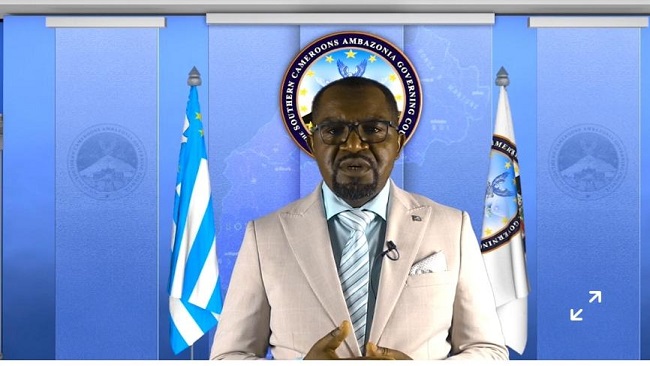

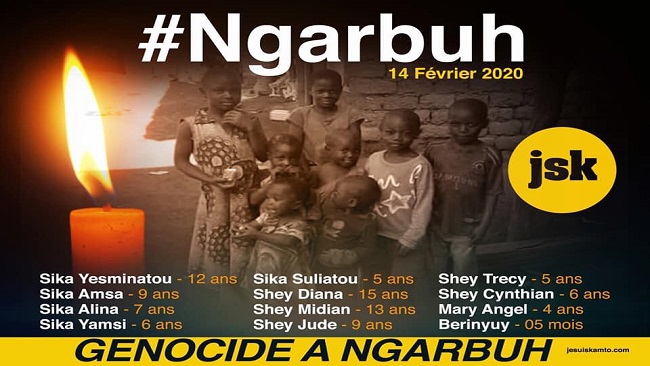
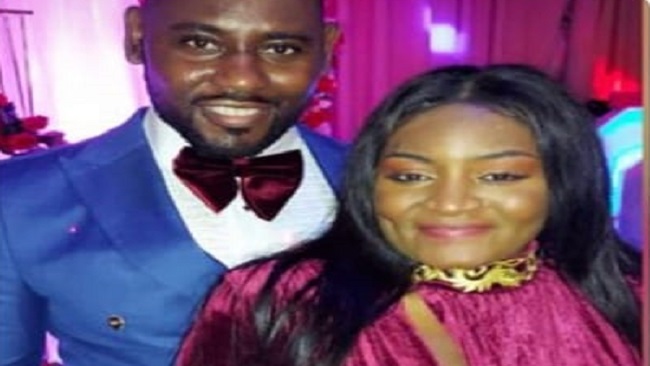

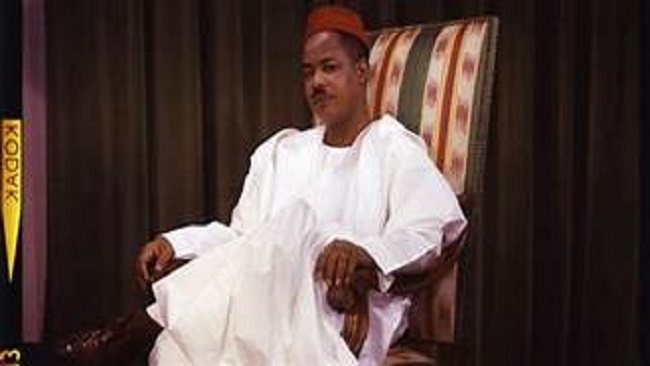
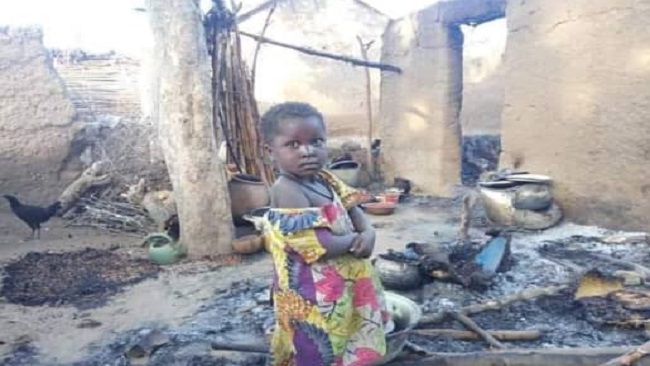
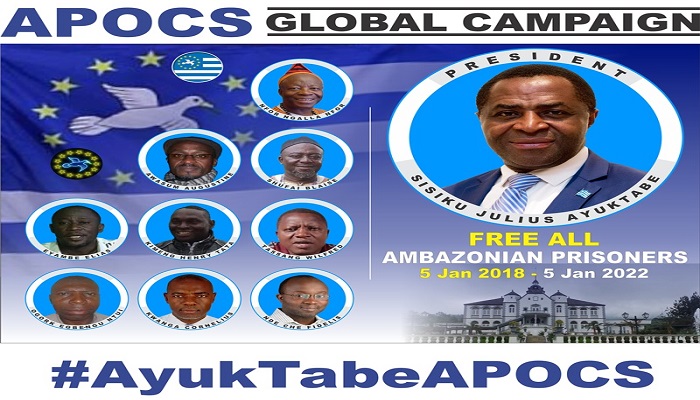













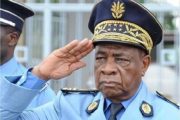


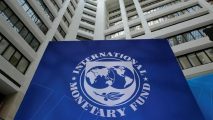

21, February 2022
Sisiku Ayuk Tabe: Southern Cameroons Revolutionary Leader Forever 0
Five years into the war in Southern Cameroons and four years ever since the leader of the Ambazonia Interim Government was arrested by Nigeria’s intelligence agency and handed over to the Francophone dominated regime in Yaoundé, Sisiku Ayuk Tabe, the Southern Cameroons iconic leader, is still seen as the man capable of taking Ambazonians to Buea and a fighter who constantly gives Southern Cameroonians hope despite the hardships.
Thousands of Southern Cameroonians in the diaspora are now of the opinion that if President Sisiku Ayuk Tabe was out of French Cameroun captivity, the problems that led to the split in the Ambazonia Interim Government would not have taken place, and that Sisiku Ayuk Tabe, the artist of skilful diplomacy, would have found a way out of every predicament in the Southern Cameroons struggle.
Millions of Southern Cameroonians all over the globe also say that if Nigeria did not betray President Sisiku Ayuk Tabe, he would never have allowed conditions in Ground Zero to move from bad to worse.
The changes in the Southern Cameroons resistance and battle for independence that have developed in Ground Zero, Ground One and in the diaspora since the arrest of President Sisiku Ayuk Tabe have become more complex.
The Ambazonian leader Sisiku Ayuk Tabe and nine of his top aides were arrested inside NERA Hotel in Abuja, Nigeria.
Sisiku Ayuk Tabe posters still hang on buildings and his pictures are drawn on major streets in towns and villages in Southern Cameroons.
His continued detention at the Kondengui Maximum Security Prison in Yaoundé is now considered by a majority of Southern Cameroonians as a sign of his rejection to discuss the issue of separation on French Cameroun terms that falls short of Ambazonian aspirations for independence and statehood.
A group of Southern Cameroons Interim Government front line leaders including the man he entrusted the job of Communications Secretary, Chris Anu considered Sisiku Ayuk Tabe irrelevant and called for him to be killed in jail.
Sisiku Ayuk Tabe, who opted for resistance against La Republique du Cameroun following decades of marginalization, has remained defiant hoping that the Hand of God will help the people of Southern Cameroons-Ambazonia realize their statehood dream.
His aides who distanced themselves from the scandal hit Maryland cabal have always said that Sisiku Ayuk Tabe is not convinced French Cameroun under Biya is ready to make peace with the people of Southern Cameroons.
His successor, Sako Ikome, unlike Ayuk Tabe, was neither a fighter nor an intelligent man and did not believe in anything besides the money donated by the Diaspora for “My Trip To Buea”.
The recent crisis that has rocked the Maryland Sako IG crime syndicate has reinforced the Ambazonian’ belief that the so-called Sako-Chris Anu IG was not a partner for Southern Cameroons liberation war.
The only way to make Biya and French Cameroun change their positions vis-à-vis the crisis in Southern Cameroons would be a change in the positions of all Southern Cameroons diaspora groups. That change should include rallying behind Vice President Dabney Yerima.
The entire Maryland gangs have been thrown into a vicious cycle of instability. They succeeded in painting Sisiku Ayuk Tabe as the man who wanted to govern from prison and they won support from the diaspora and Ground One, but they have failed to neutralize Dabney Yerima, the symbol of the Southern Cameroons resistance who does not go around deceiving the Ambazonian people.
With the collapse of the Maryland cabal, the tools and the scenario in Ground Zero would be different in the coming days and weeks.
By Soter Tarh Agbaw-Ebai